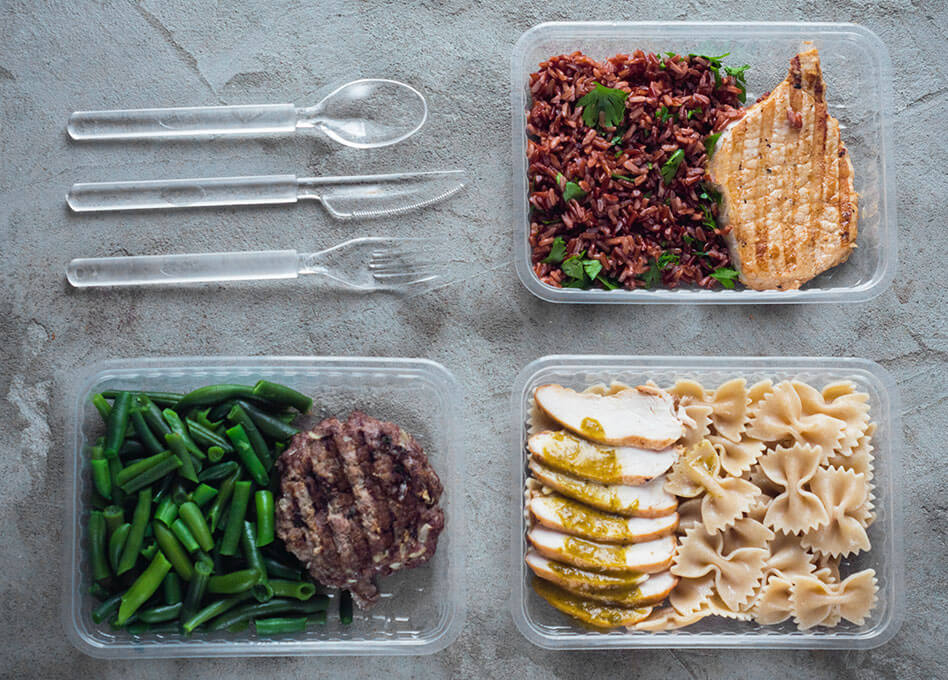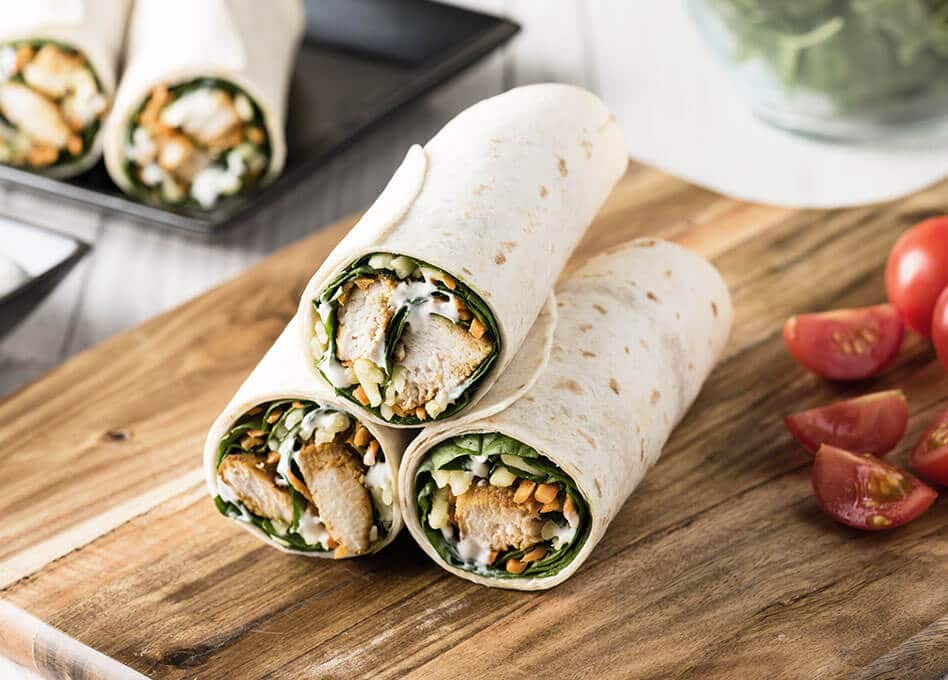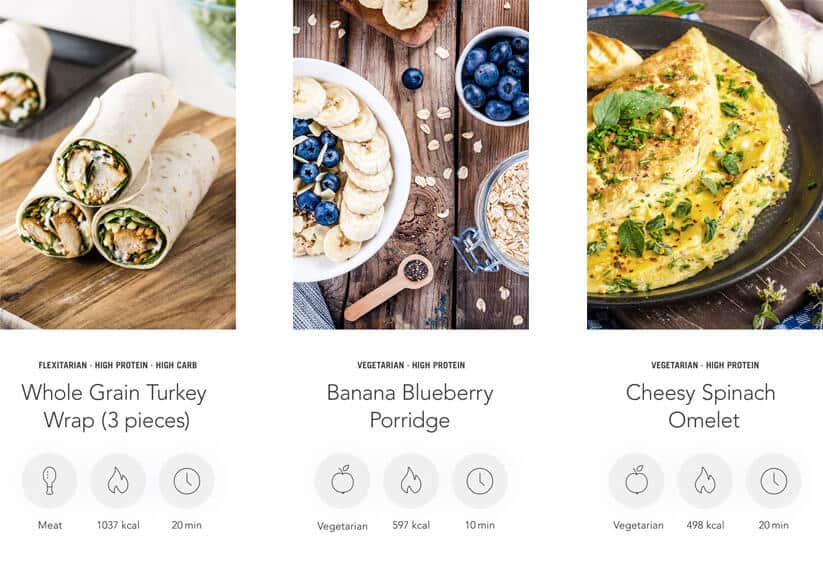Meal Plan for Muscle Building

Are you bothered by how much time you have to spend planning your muscle building diet, meals, and grocery lists? Do you no longer want to have to look for carbohydrates, protein and fat while shopping? Or are you just not building muscle fast enough?
An aesthetic, athletic body is a goal worth working for. The solution is the Kickass Sports meal plan for muscle building. Suitable for men and women.
- The basic building blocks of muscle building
- Problems in building muscle nutrition
- This is how a nutritional plan for building muscle works
- Example meals from the meal plan for muscle building
- Start your transformation
- Building muscle – setting smart goals
- Genetics & muscle building
- Training frequency and intensity
- Supplements for muscle growth
- The value of protein
- Muscle building tips & tricks
Do you have questions about the Kickass Sports meal plan? Ask them in the live chat or at kickasssports@upfit.io and we will answer your questions!
1. The basic building blocks of muscle building

Your body builds muscle in reaction to stimuli that affects the moving muscles. If you have a muscle building meal plan that is personalised to your body data, and you regularly push yourself to the limit during training, your body responds by spreading the signal “build muscles” via hormones and neurotransmitters. When in this state, the metabolism of protein -the substance that makes up the muscles- is increased.
Remember: Push yourself to your limit – otherwise strength training is just exercise therapy. The following building blocks are the tools with which you will transform your body:
Building blocks of muscle building
- A personalised muscle building nutrition plan that gives you the optimal distribution of micronutrients and macronutrients, as well as calorie intake (by the way: with our calorie calculator you can calculate the key data for your optimal calorie and nutrient distribution)
- Progressive training plan
- Healthy lifestyle with enough rest and regeneration
You probably know that your body can only build muscle mass if it gets enough energy. Whether you build muscle or merely fat deposits depends first and foremost on your muscle building meal plan and your training plan.

Which diet is best for you? Choose between omnivore, vegetarian, vegan, flexitarian, pescetarian, or paleo.

Do you have food intolerances or allergies? Do you not like certain foods? No problem, just exclude them from your plan.

Spend less time in the kitchen, easily prep meals in advance or skip meals when you go out to eat. Always adapted to your food budget.

Motivation
Have questions? Get free advice from our nutrition and fitness experts via Live-Chat and email.

All plans are adapted to your goals and your optimal intake of micronutrients and macronutrients.
2. Problems with muscle building nutrition

Are you training regularly, but not seeing much in the way of results? Do you feel that you lack the energy to complete your workout with full power? Have you plateaued and are no longer progressing in your workouts? Then it’s time to start thinking about muscle building nutrition!
What you eat and drink are like fuel for your body and provide you with the raw material for the maintenance of your body. If you want to drive a sports car, you should provide it with the right fuel. A Porsche doesn’t drive with bio-diesel.
If your body flips the switch telling your muscles to grow, the right proteins and minerals must be present in your body. Otherwise, although the construction workers are ready, they have no stones to build with. The calculation of all nutrients should be based on your individual body data, behavior, and lifestyle.
A tailor-made muscle building meal plan not only ensures that you get the right nutrients at the right time, but also ensures that your body gets into the muscle building state quickly and efficiently.
3. Operating principles and example day in your meal plan for muscle building

The muscle building meal plan not only gives you the exact nutrition you need to build muscle, it also shows you how much to eat and when. Firstly, you’ll fill out a short questionnaire (3-4 minutes) to determine how old, how tall, and how heavy you are, what goals you have, etc. From this information, we build your tailor-made daily routine together.
3.1. Step by step
Firstly, buy the groceries on the automatic shopping list at the supermarket of your choice. If it’s a training day, your meals will look different than on your rest days – after all, the meal plan is for muscle growth. If your engine is running at full throttle, it needs a little extra care!
All you have to do is follow your plan carefully, starting with a tasty and high-protein breakfast, followed by a small snack to keep your energy level high, you’ll continue on to a well-coordinated lunch – whether at home or on the road – and then finish with dinner. The right muscle building diet ensures that you perform optimally and stay productive all day.
3.2. Are supplements a must for muscle building?
On request, your meal plan will provide you with additional supplements during and after your workout, so you can get the most out of your workout. Do you need a protein shake? If yes, which and when? What should you eat and drink before and during exercise? Such questions are answered on a case by case basis, as they depend on many individual factors that we will explore in detail in your muscle building meal plan.
6. Building muscle – setting SMART goals

Do you want to get fit and look good, but haven’t formulated a specific goal? Try the SMART principle! “SMART” stands for Specific, Measurable, Adapted, Realistic, Timed. “Being fit” is not specific. “Building five kilos of muscle” is specific.
In order to adapt your training you need to consider which equipment and stimulus you are using. If you only train on a treadmill, your training is not adapted to your goal. You will never realistically build up muscles from running alone as the stimulus is not suited to this purpose – If your goal is to build 5kg of muscle mass, strength training is a must.
It is essential you stay motivated to achieve your goals- so make your goals realistic! Take the example of building 5 kg of muscle. Accomplishing this goal in 3 months – supported by a good strength training and muscle meal plan – is realistic. Accomplishing this goal in 3 weeks is not realistic.
Examples of SMART muscle building goals
S – (Specific) e.g. 4 kg more Muscle Mass
M – (Measurable) e.g. 11% body fat percentage
A – (Adapted) e.g. by Eat ‘n’ Fit trainings plan
R – (Realistic) e.g. 2-3 hours strength training according to training plan per week
T – (Timed) e.g. within 8 weeks
Be smart about your goals and follow your tailor-made muscle building meal plan closely. Deviating from your meal plan will ultimately cost you time, nerves, and motivation. Here is a sample exercise plan.
7. Genetics and muscle building

How fast you can achieve something depends on the right approach as well as on your genetics. No matter which body type you are (ectomorph = tendency to be lean, difficulty building muscle / mesomorph = fast muscle building / endomorph = tendency to put on fat), your nutrition plan to build muscle is tailored to you.
So don’t get discouraged just because it’s easier for others. A consistent lifestyle will eventually get you to your goal – as the saying goes: hard work pays off.
8. Training frequency and intensity

It is also important that you stay relaxed during your training plan. Many go into their muscle building project with the mantra “A lot of training means a lot of muscle” and constantly push themselves to the limit. Overtraining puts you at risk of injury and other health problems. It is therefore important to start gradually – this means increasing your training step by step. Of course this not only applies to your training plan, but also to your muscle building meal plan.
Try to improve with every workout, but don’t overdo it. You should not be trembling after each workout with cramps. Performing smoother, more controlled exercises, or using heavier weights are measurable factors that show your progress. However, training until you’re completely exhausted, without paying attention to proper execution and rest, will get you nowhere. This applies to both the training itself and to the training week: Your muscles need time to regenerate and grow, so you should usually train each muscle group 2-3 times a week, with breaks in between.
Strength-training exercise must be frequent and close together so that your body remains in a muscle building state. That being said, rest days, during which the muscles are regenerated and built up, are just as important. Bad sleep and high levels of stress are bad for your recovery, and what is bad for your recovery is bad for your muscle building, because this is nothing but an overcompensating process. Many things can cause you stress, a common stressor among athletes is “analysis paralysis”: overthinking your training to the extent that it ultimately leads to stagnation.
Keep it simple: The best part of the Kickass Sports muscle building nutrition and exercise plans is that they are developed by nutrition experts to give you results; you do not have to know everything yourself. Simply trust your plan and focus your energy on following it carefully. You will notice that you are progressing quickly.
9. Nutritional supplements for muscle building

Muscle building without supplementation? Is that even possible? You bet!
Imagine your body is like a sports car. Our muscles are the engine and our bodies the entire vehicle. Macronutrients – proteins, fats, and carbohydrates – are the fuel, and micronutrients – vitamins, minerals, trace minerals – are the wires and screws that ensure that everything works and works well (read more about the types and functions of micronutrients here).
For a while you can continue with a missing screw, but eventually it bothers you, or it causes problems. Our need for micronutrients arises from our living environment and our way of life.
Athletes or people with a chronic illness often benefit from a high intake of regenerative vitamins and minerals. People in Central and Southern Europe, for example, have as much of a vitamin D3 deficiency as people who spend the whole day indoors because of lower solar radiation. Vitamin D3 also plays a role as a prohormone in muscle building. Magnesium is important for many processes related to exercise and nutrition.
Creatine, Beta Alanine, BCAAs or Whey Isolate are commonly used muscle building supplements and can be quite helpful in building muscle – but again, taking more supplements will not automatically give more results. Supplements are, as the name implies, a supplementation to your muscle building nutrition plan. Your meal plan should already cover most of your nutritional needs. You should also know which supplements to use and when they are most effective. Check out our top 10 list – here you’ll find an overview of supplements, dosages, and application areas.
List of muscle building supplements:
- Multivitamin mineral / muscle function, energy systems, regeneration / depending on the manufacturer / with meals
- Magnesium / involved in many metabolic processes, including stress-reducing, activating, sleep-inducing, tonus-lowering / 10-30 mg per kg body weight / Pre-workout, for the last meal
- Whey protein isolate / fast available protein, increases protein synthesis / 30-60 g / post workout
- BCAA’s / directly available in the muscle amino acids, anti-catabolic (slows down muscle breakdown), increase protein synthesis, increase resilience / 4-10 g / post-workout, per workout
- Creatine / energy metabolism active, increases resilience during intense workouts / 5-10 g / pre workout
- Beta alanine / activating, muscle over dosage delay / 3-6 g / pre workout
- Vitamin D3 / muscle function, passive musculoskeletal system / 2500-5000 IU per day / evening
- Amino-Electrolyte / Preservation of focus and performance in training, short-term regeneration / 20-30 g / per workout
- L-glutamine / regeneration, exposure tolerance / 5-10 g / per meal
- Multi-component protein / cover the general protein requirement, regular protein supply / 30-60 g / between meals
10. Value of protein
Although several things can help you reach your goal of becoming more muscular, there is one factor of crucial importance: how much protein your body gets and in what form.
You want to eat foods with a high biological value. Biological value indicates how appropriate the amino acid profile of a particular food is for the needs of the human body. In short, is the fuel right for my engine? Does the product contain a sensible combination and amount of amino acids?
Amino acids are the organic compounds that make up protein, they have different functions in our body. Some, such as glutamine or arginine, you may have heard of. When is comes to amino acids, animal protein often offer more complete profiles than vegetable proteins.
This does not mean you cannot create a successful muscle-building diet as a vegan or vegetarian. It’s just a matter of getting enough proteins with good amino acid profiles.
Most protein-containing plant foods only provide a small portion of the spectrum of amino acids we need, so different foods should be combined with different amino acids to ensure a complete supply. A classic combination of high value is beans or lentils with rice- but the price in this case is a high carbohydrate content.
11. Muscle building tips & tricks

Building muscle is not a mystery. It’s simple maths with a few clear rules. These tips will help you build your muscles.
- Eat protein with every meal
- Do not skip meals
- Eat well and eat a lot
- Do strength training
- Don’t skip training days
- Train all body areas
- Train progressively
- Surround yourself with people who support you
- Be SMART
- Be consistent

